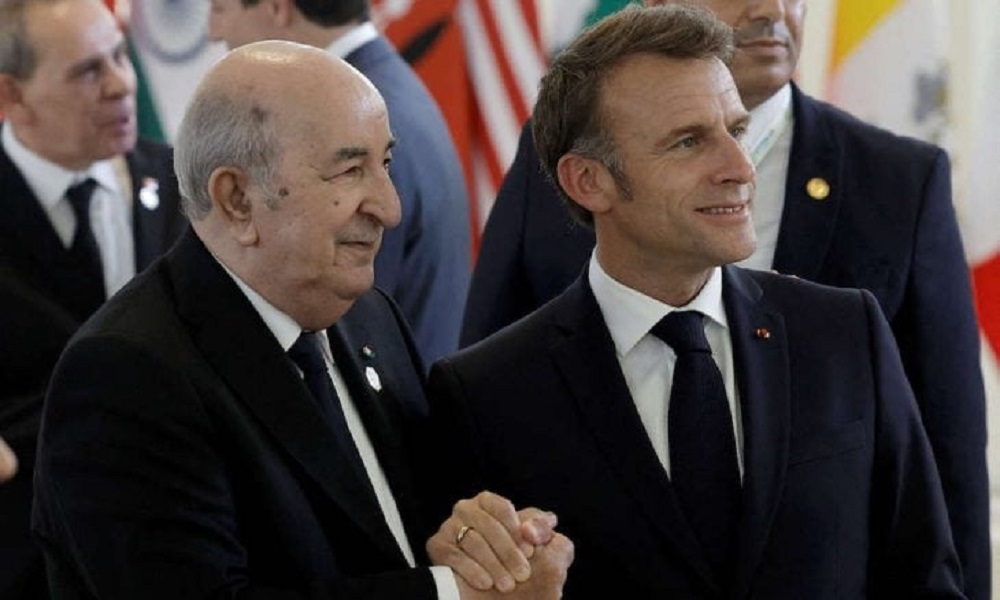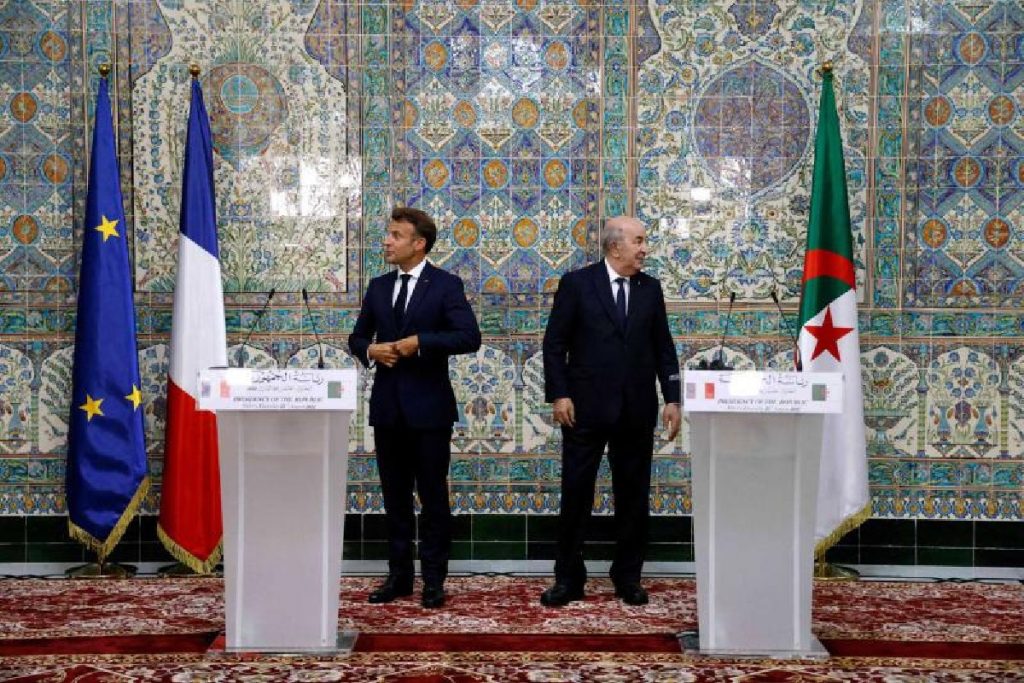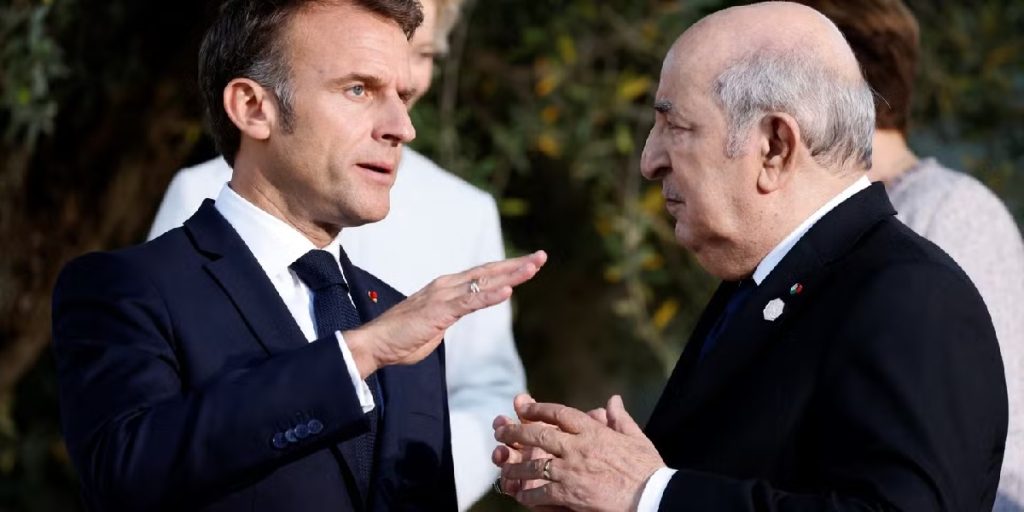France and Algeria Rekindle Ties After Diplomatic Standoff
Security, migration, and economic interests push Macron and Tebboune to restore cooperation following months of strained relations.

Watan-Many factors have driven French President Emmanuel Macron and his Algerian counterpart Abdelmadjid Tebboune to reconnect after months of diplomatic crisis between their countries. These include the need for security and economic cooperation, as well as the sensitive issue of France’s inability to deport many Algerians without Algeria’s cooperation.
After eight months of an unprecedented diplomatic rift, the two presidents confirmed during a phone call on Monday the need to renew dialogue, citing the “strength of the ties” between France and Algeria, their shared strategic and security interests, and the “challenges and crises facing both Europe and the Mediterranean-African region.”
Complex Human Ties
France, Algeria’s former colonial ruler, is home to a large Algerian community—649,991 individuals as of 2024, a 0.5% increase from 2023, according to the French Interior Ministry. In addition, about 1.2 million people are descendants of Algerian immigrants, according to the National Institute for Demographic Studies.
Restrictions on short-term visas for family visits directly impact Algerians. French Prime Minister François Bayrou and Foreign Minister Jean-Noël Barrot emphasized that the Algerian community should not bear the burden of this diplomatic fallout.

Security Cooperation
Algeria expert Hasni Abidi noted that “France views Algeria as a key partner in the fight against terrorism due to its experience and capabilities in the field.”
France also has a vested interest in Algeria’s stability. As Africa’s largest country, Algeria borders conflict-ridden nations like Mali, Niger, and Libya.
With this in mind, the two countries will resume cooperation in combating jihadist movements in the Sahel region, where intelligence sharing will be crucial. The goal is to curb the growth of armed groups, drug and arms trafficking networks, and human smuggling rings.
Additionally, France and Algeria will collaborate on the sensitive issue of the return of hundreds of jihadists—either Algerians or French citizens of Algerian origin—who had traveled to Syria.
Economic Interests
Algeria is a significant energy player, and France is one of its gas clients. A diplomat remarked that this is “important for us but not critical,” noting that Algerian gas accounts for 6–7% of France’s supply.
The crisis has negatively affected French economic interests in Algeria, where around 6,000 French companies operate. Trade volumes dropped by 20–30% in some sectors last year, particularly following the halt in French wheat imports.
While smaller businesses have been hit the hardest, large companies have also suffered. For instance, the reopening of a Renault car manufacturing plant was suspended.

Migration Tensions
The issue of repatriating Algerians who are under deportation orders from France has escalated tensions. French Interior Minister Bruno Retailleau has repeatedly raised the matter.
Tensions peaked after a February 22 attack in Mulhouse (eastern France), which killed one person. The perpetrator was an Algerian national whom France had repeatedly tried to deport, but Algeria had refused.
According to the latest report from the Directorate-General for Foreigners in France, forced deportations of Algerians in 2024 are expected to be higher than average. Of the 34,000 Algerians detained for irregular status, only 3,000 were deported last year.
Following the Mulhouse attack, some French ministers threatened to restrict work visas and revoke diplomatic visas.
However, when it comes to visa access for high-profile individuals such as ministers, former diplomats, and senior officers, Algeria can easily bypass restrictions through a recently signed reciprocal agreement with Slovenia.
Additionally, other EU countries like Italy, Germany, and Spain—major importers of Algerian gas—can issue Schengen visas to Algerian officials.

EU Partnership Agreement
Algeria also needs France, which holds significant sway in Brussels, to revise its partnership agreement with the European Union—the country’s largest trading partner.
The agreement, which came into force in 2005, calls for the mutual and gradual elimination of customs duties on imported goods.
Last October, President Tebboune announced his desire to renegotiate the agreement with the EU, while Algerian experts estimate that the deal has cost Algeria over $30 billion in lost revenue.
Moreover, Algerian public and private companies have struggled to compete with French firms, as the Algerian economy remained closed for a long time and has traditionally relied on hydrocarbon exports.
On Monday, Macron expressed France’s support for revising the agreement.






